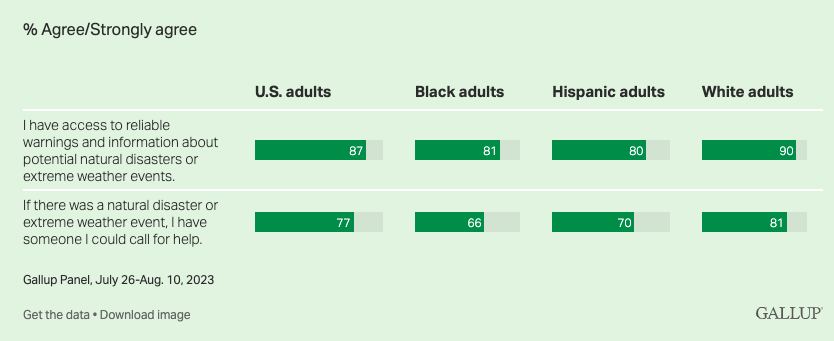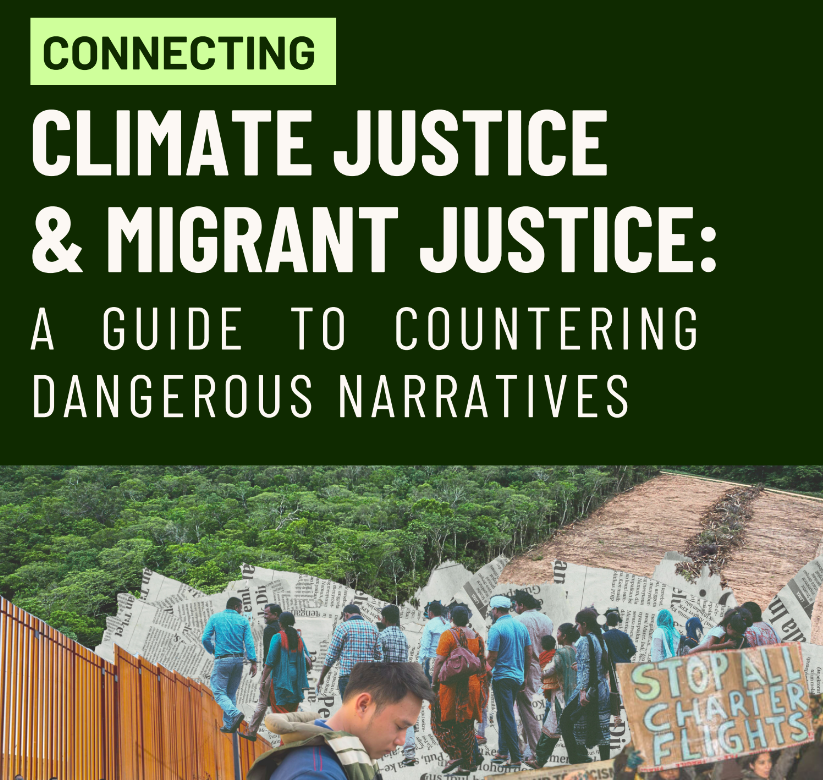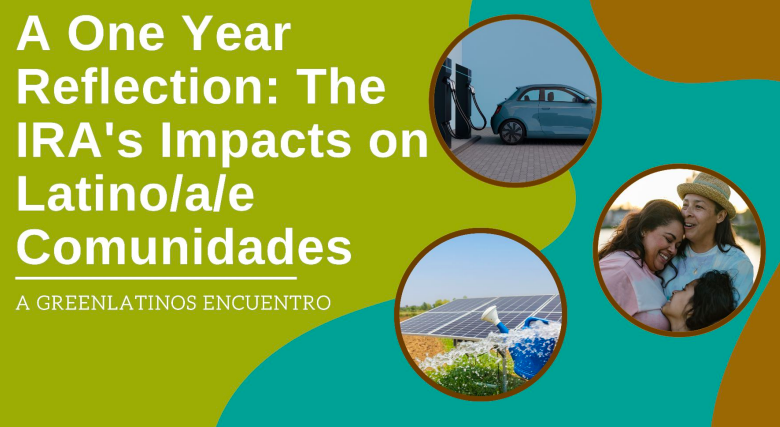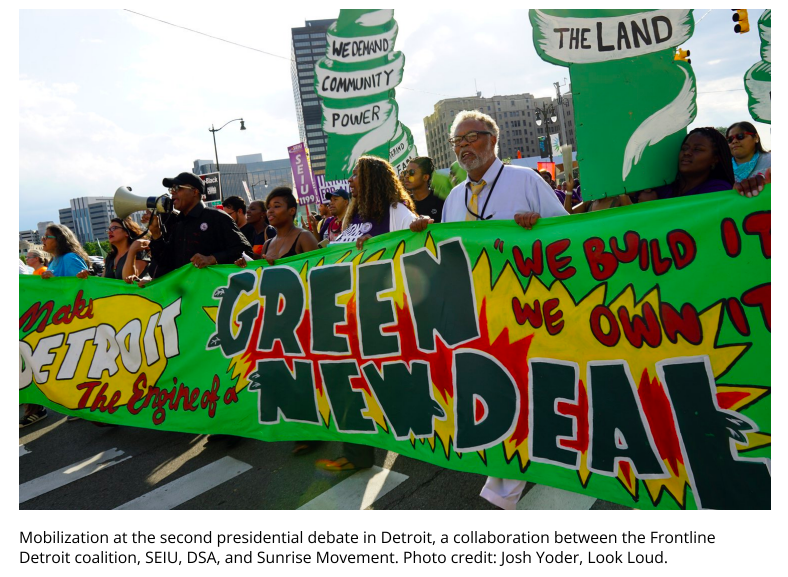Resources
Search below for resources covering the intersection of climate engagement, social science and data analytics.
RESULTS
Poll: Black, Hispanic Americans More Vulnerable to Extreme Weather
Black and Hispanic Americans feel particularly vulnerable to extreme weather, reporting less confidence in their local governments and less preparedness in their communities. Wide majorities of all racial and ethnic groups “agree” or “strongly agree” that they have access to reliable warnings and information about potential natural disasters and that they have someone they can call for help in the event of extreme weather. Still, White Americans exceed both Black and Hispanic Americans by about 10 percentage points on each measure. Between 53% and 56% of Black and Hispanic adults agree they could recover and rebuild, have the resources to do so or have taken steps to prepare their household for a natural disaster or extreme weather event. Meanwhile, between 65% and 72% of White Americans agree across these measures -- indicating their greater degree of preparedness and ability to recover.
Environmental Polling Roundup - October 27th, 2023
This post includes climate and environment headlines, data points, and key takeaways from recent public polls - including a new Pew report on Americans’ climate attitudes, a new analysis of pro-climate Republicans, and new polling on President Biden’s investments in clean energy and infrastructure.
Environmental Polling Roundup - October 20th, 2023
This post includes climate and environment headlines, data points, and key takeaways from recent public polls - including new polling on the benefits of climate policies for people's health and Latino/a/x Americans' climate opinions.
How climate activists won the American Climate Corps
Last month, President Joe Biden announced the launch of the American Climate Corps, or ACC — a program that will train some 20,000 young people in careers in climate and clean energy. In this resource, Sunrise Movement co-founder Evan Weber discusses the years of Green New Deal organizing that led to the landmark new jobs program to address the climate crisis. A broad paint brush of tactics contributed to the win that is the American Climate Corps. These tactics included 500 young people getting arrested for blocking the White House in the summer of 2021 while demanding a fully-funded civilian climate corps in the Build Back Better negotiations. They also included behind-the-scenes lobbying and policy negotiation, coalition building and the electoral work that delivered some of the highest youth voter turnout in modern history — with climate being the reason that happened. The latter is also the reason President Biden went more aggressive on climate and updated his climate policy.
Environmental Polling Roundup - October 6th, 2023
This post includes climate and environment headlines, data points, and key takeaways from recent public polls - including new polling on climate denialism, Big Oil and politicians, solar and wind projects near communities, electric vehicles, and religiosity and climate views.
Communicate about climate-linked migration through justice-based framing to counter dangerous anti-migrant narratives. Dangerous narratives use fear- or threat-based language or framing of migrants in an attempt to accelerate climate action, while scapegoating the most vulnerable people. Use these principles to frame climate and migration. Lead with values: Humans have always moved for safety. Name the villain: Talk about how governments and corporations are profiting from abuse against migrants and refugee. Share the vision: Articulate the right to stay and the right to move.
Climate Change in the American Mind: Climate Justice, Spring 2023
Americans are largely unfamiliar with the concept of “climate justice,” but support the goals of climate justice and key climate justice policies when they learn about them. 81% of voters support creating more parks and green spaces in low-income communities and communities of color. 77% of voters support strengthening enforcement of industrial pollution limits in low-income communities and communities of color that are disproportionately impacted by air and water pollution. 75% of voters support developing a national program to train people from low-income communities and communities of color for new jobs in the renewable energy industry. 53% of voters support the goals of climate justice after reading a brief description of the concept.
The emerging picture of the most-often cited challenges grassroots groups are facing currently includes: 1) Help with building intersectional narratives and coalitions to link struggles together; 2) Activist safety & security in repressive environments; 3) Maintaining activist engagement and working together efficiently in groups; 4) How to secure funding for grassroots organizing and how to report impact; 5) How to build effective strategy within non-hierarchical structures; 6) Managing burnout among activist communities & collective care. The Global Grassroots Support Network is a collection of 84 seasoned grassroots organizers, campaigners, coaches and more. The Network supports struggles for climate justice, reproductive justice, LGBTQIAS+ rights, housing justice and workers’ rights. These members currently come from: Australia, Canada, Denmark, France, Germany, Ireland, Kenya, the Netherlands, New Zealand, Nigeria, Spain, Tanzania, Turkey, Uganda, the U.S., UK and Zimbabwe. If you’re excited by the mission of supporting grassroots justice-oriented activists, the Network has lots of room for new members and you can commit the amount of time that is accessible to you, and the input that supports your mission.
The GreenLatinos Inflation Reduction Act (IRA) Anniversary Enuentro is an event dedicated to celebrating the successes and acknowledging the shortcomings of the IRA in delivering environmental justice in nuestras comunidades. These PDF slides include lots of information about IRA provisions' potential impacts on Latino/a/e communities in the US. Further, see a webinar link to a discussion of these provisions.
The Kernel: A Tool for Developing Good Strategy (and Avoiding Bad Strategy)
The Sunrise Movement successfully relied on the “strategy kernel for campaigning.” The kernel involves three elements: a diagnosis that defines or explains the nature of the challenge, a guiding policy for dealing with the challenge, and a set of coherent actions that are designed to carry out the guiding policy. The Sunrise Movement used the kernel by convening the leadership team for a meeting to discuss each layer of the kernel; usually, a small team then took responsibility for completing the kernel, providing overarching direction for our shared work. In strategy work for movements, this resource’s author has been part of many conversations that began instead with deliberating the third layer of the kernel—the actions the group should take—and ended up spiraling into disagreement. The #ChangeTheDebate campaign in the spring and summer of 2019 is an example of how Sunrise used the kernel: Diagnosis—a central challenge is that the Green New Deal (GND) is polarized and presidential candidates are not talking about it because of the strategic narrative attacks from Fox/right-wing media; Guiding Policy—the movement must force presidential candidates to publicly and boldly talk about the GND in the media; Coherent Actions—launch the campaign will compelling visuals, host debate watch parties across the movement, catalyze a centralized mass action, birddog Biden and other candidates, and run a targeted, escalated action demanding time during the debate devoted to climate.
Pagination
- Previous page
- Page 3
- Next page






